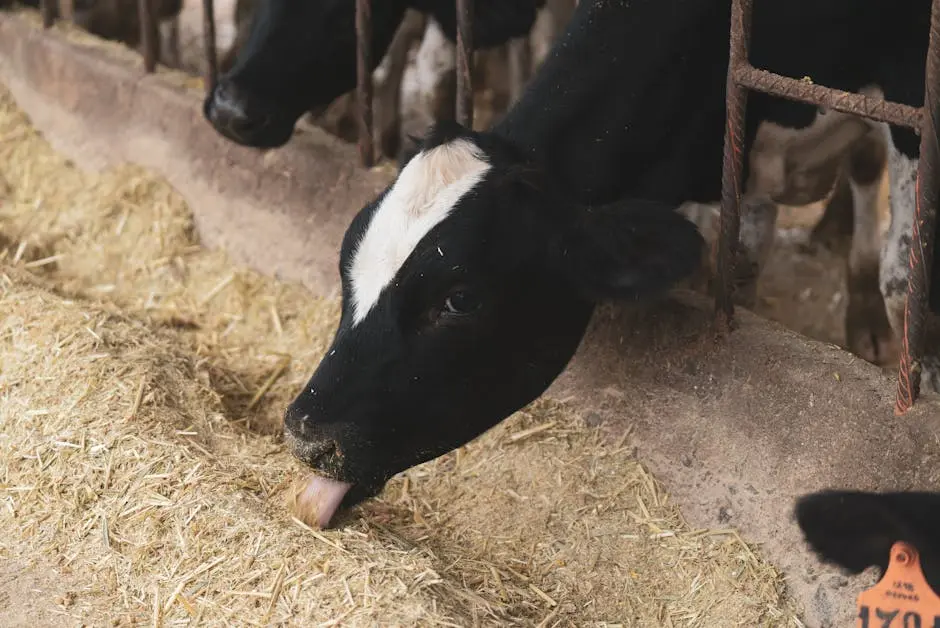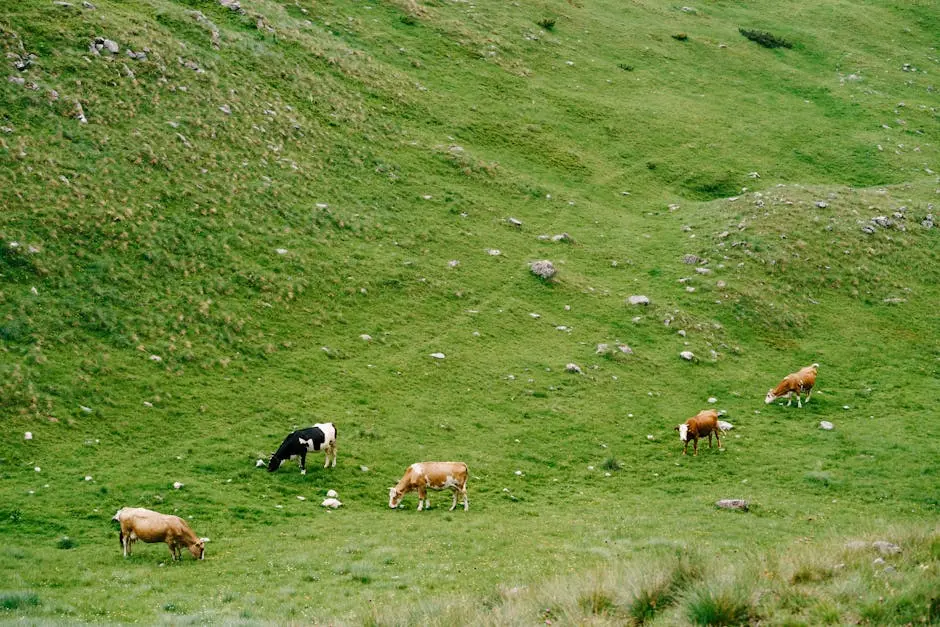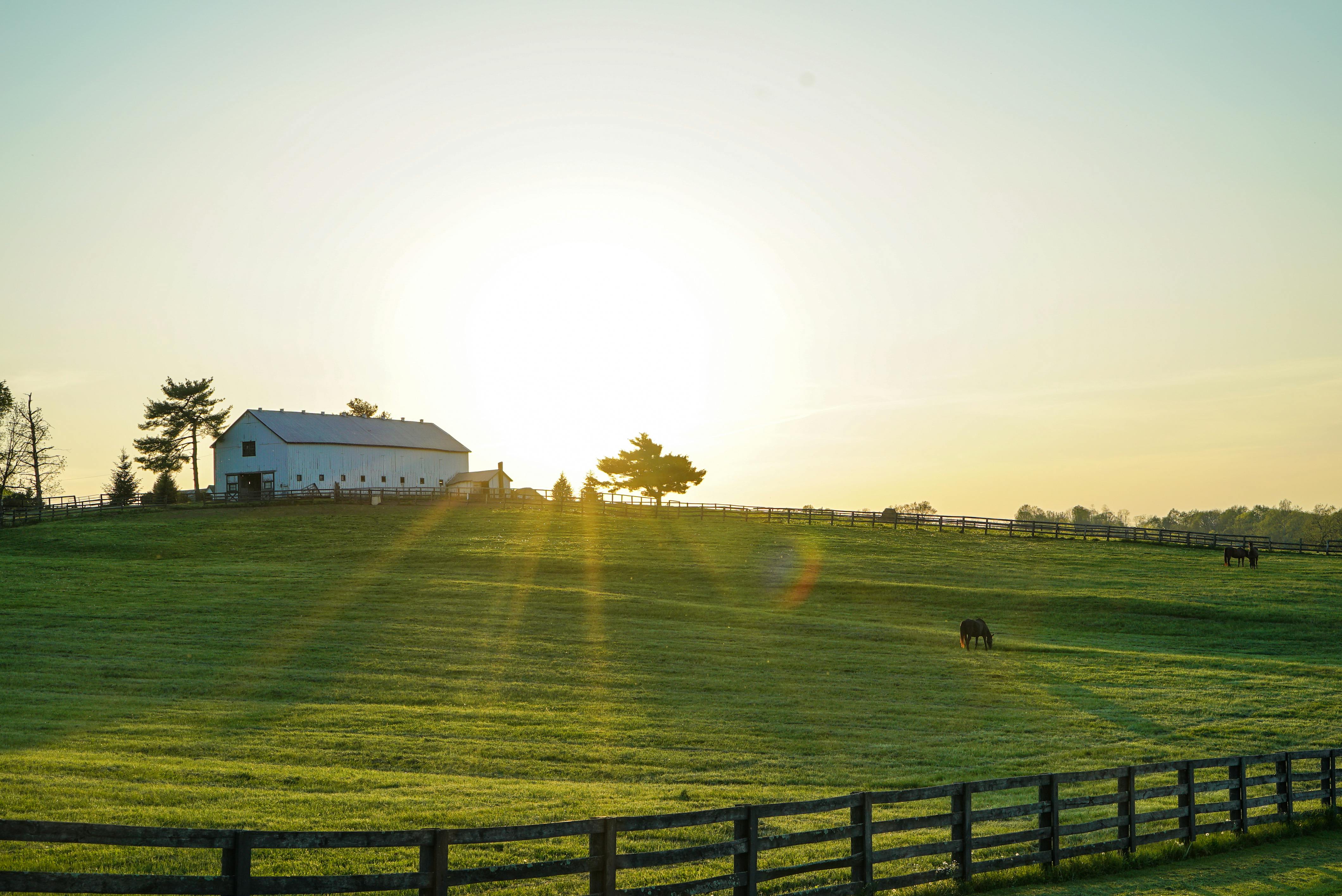10 Ways Cattle Genetics Can Revolutionize Your Herd Management
By understanding the science behind genetics, farmers can make informed decisions that will lead to healthier herds, better production, and improved profitability.

Cattle genetics is a fascinating field that plays a crucial role in the efficiency and success of modern farming. By understanding the science behind genetics, farmers can make informed decisions that will lead to healthier herds, better production, and improved profitability. In this blog, we'll explore ten innovative ways that cattle genetics can transform your herd management practices, making them more efficient and sustainable.
1. Enhancing Breeding Strategies
Understanding genetics allows farmers to select traits that lead to stronger, more resilient cattle. Through careful selection, farmers can focus on specific characteristics such as growth rate, feed efficiency, and adaptability to various environments, yielding herds that are not only hardier but also more productive. It’s like having a blueprint for the ideal animal, enabling you to create a herd that thrives under your unique farming conditions.
Advancements in genetic research have also introduced technologies like artificial insemination (AI) and embryo transfer, which allow farmers to utilize superior genetics without the need for large-scale operations. This means even smaller farms can access top-tier genetic material, leveling the playing field significantly. Integrating these innovative breeding strategies can fundamentally alter your herd's composition over time, delivering results that exceed traditional breeding methods.
2. Improving Meat Quality
Genetic advancements help in breeding for better marbling and tenderness, which consumers increasingly demand. As markets shift toward higher quality beef, understanding genetics becomes indispensable for cattle producers who want to stay competitive. By focusing on specific genetic markers, farmers can cultivate cattle that not only meet but exceed consumer expectations, ultimately enhancing marketability and profitability.
Moreover, the improved meat quality often translates to better flavor and texture, creating happier customers who are willing to pay a premium. Isn’t that the goal? By investing in the right genetic programs, you can ensure that your beef stands out in a crowded market, giving your farming operation the edge it needs for long-term success. The link between genetics and quality is clear: a well-bred animal yields a product that customers can’t resist.
3. Optimizing Milk Production
By selecting superior genetic lines, dairy farmers can significantly boost yield and milk quality. Cattle genetics play a pivotal role in determining factors such as milk fat content, lactose levels, and general health of the animals. These traits are not just numbers; they translate to better profitability and customer satisfaction.
In fact, with the right genetic choices, a single strain of dairy cattle can produce far more milk than their counterparts. This empowers farmers to meet the ever-growing demand for dairy products while also ensuring sustainability. How does this fit into your business model? It allows you to plan better for the future, reducing uncertainty while maximizing output. With advanced techniques like genomic selection, it’s easier than ever to make informed choices that drive milk production to new heights.
4. Enhancing Disease Resistance
Genetic selection can improve immunity in cattle, reducing the need for antibiotics and improving herd health. By identifying and selecting for genes associated with disease resistance, farmers can breed cattle that are naturally less susceptible to common illnesses, leading to lower veterinary costs and healthier animals overall.
This not only benefits the animals but also contributes to a more ethical approach to farming. Fewer antibiotics mean a reduced risk of resistance developing, promoting a healthier ecosystem while satisfying consumer concerns regarding animal welfare. It’s an investment that pays dividends in enhanced herd longevity and reduced mortality rates, ensuring that your farming operation remains robust and reputable.
5. Reducing Environmental Impact
Cattle bred for efficiency can lead to lower greenhouse gas emissions and a reduced carbon footprint. Understanding cattle genetics provides insight into how specific traits can influence not just the productivity of the animal, but also its environmental impact. By breeding cattle that convert feed into energy more efficiently, farmers can help mitigate the ecological challenges currently facing agriculture.
Additionally, innovations in genetic research are continuously unveiling traits that allow cattle to thrive on less feed or produce less methane. This kind of forward-thinking not only benefits your bottom line but also aligns your practices with the global push for sustainable agriculture. As farmers, embracing genetic solutions isn’t merely a trend; it’s a necessary step toward ensuring our practices are aligned with a sustainable future.
6. Increasing Feed Efficiency
Genetic insights allow for breeding cattle that convert feed into protein more effectively, lowering costs. Efficient feed conversion is vital in today’s agricultural landscape, as feed often represents one of the largest expenses farmer faces. By selecting for traits that enhance feed efficiency, farmers can significantly reduce their costs while maintaining high levels of production.
Furthermore, improving feed efficiency doesn't just benefit the farmer’s wallet; it also contributes positively to the environment by lowering the overall demand for feed resources. This translates into a reduced carbon footprint and promotes more sustainable land use. Being able to optimize every aspect of your herd’s efficiency is a win-win situation for both economic viability and ecological considerations—truly the best of both worlds.
7. Enhancing Reproductive Performance
Identifying genetic traits associated with fertility can lead to better reproductive outcomes and herd growth. Understanding which cattle carry the best genes for reproduction allows farmers to make informed decisions about breeding and herd management. This can translate into fewer calving difficulties, healthier calves, and higher survival rates—all critical elements for a successful operation.
Moreover, maximizing reproductive efficiency means a quicker turnover in calf production and allows for better herd expansion. Improved reproductive performance isn't just about numbers; it creates a stable and productive herd that supports both short-term profits and long-term sustainability. Investing in genetics means creating a more dynamic and resilient herd that can meet both current and future demands.
8. Utilizing Genomic Testing
Advancements in genomic testing provide farmers with a wealth of data to make informed breeding decisions. This technology allows for precise identification of desirable traits before the animals are even born. The days of relying solely on phenotypic characteristics are long gone; genomic testing provides a clearer picture of the genetic potential of each animal in your herd.
With insights gained from genomic data, farmers can tailor their breeding programs to achieve specific outcomes much more efficiently. Want to focus on growth rates? There’s genetic data to support that. Interested in enhancing disease resistance? Genomic testing can guide you there as well. The insights gained from this technology can streamline the breeding process, making it more targeted and effective than ever before.
9. Personalized Herd Management
Understanding individual genetic traits allows for tailored management practices that enhance overall herd performance. Instead of adopting a one-size-fits-all approach, customization in herd management nurtures both individual well-being and group productivity. By leveraging genetic data, farmers can offer specific nutritional plans that cater to the needs of each animal, optimizing health and output.
This level of personalization leads to better overall herd health, lower mortality rates, and enhanced productivity. In an industry where every detail matters, prioritizing personalized care can make a monumental difference in day-to-day operations and long-term outcomes. The days are gone when herd management was merely about keeping animals fed and sheltered; modern practices now involve a sophisticated understanding of genetics informing every aspect.
10. Future-Proofing Your Farm
As environmental and economic pressures grow, genetic advancements can help ensure the long-term viability of cattle operations. By embracing cutting-edge genetics, farmers are not just surviving— they are thriving. This adaptability is essential as we face uncertainties such as climate change, fluctuating market demands, and evolving consumer preferences.
Implementing genetic strategies not only increases resilience but also guarantees that your farm can navigate future challenges successfully. The integration of innovative breeding methods can lead to strong, adaptable herds capable of withstanding unforeseen circumstances. In this rapidly changing world, ensuring the future of your farm means investing in genetics today. It's more than a trend; it's a necessity for sustainability and success.


